Cell Cycle/Checkpoint
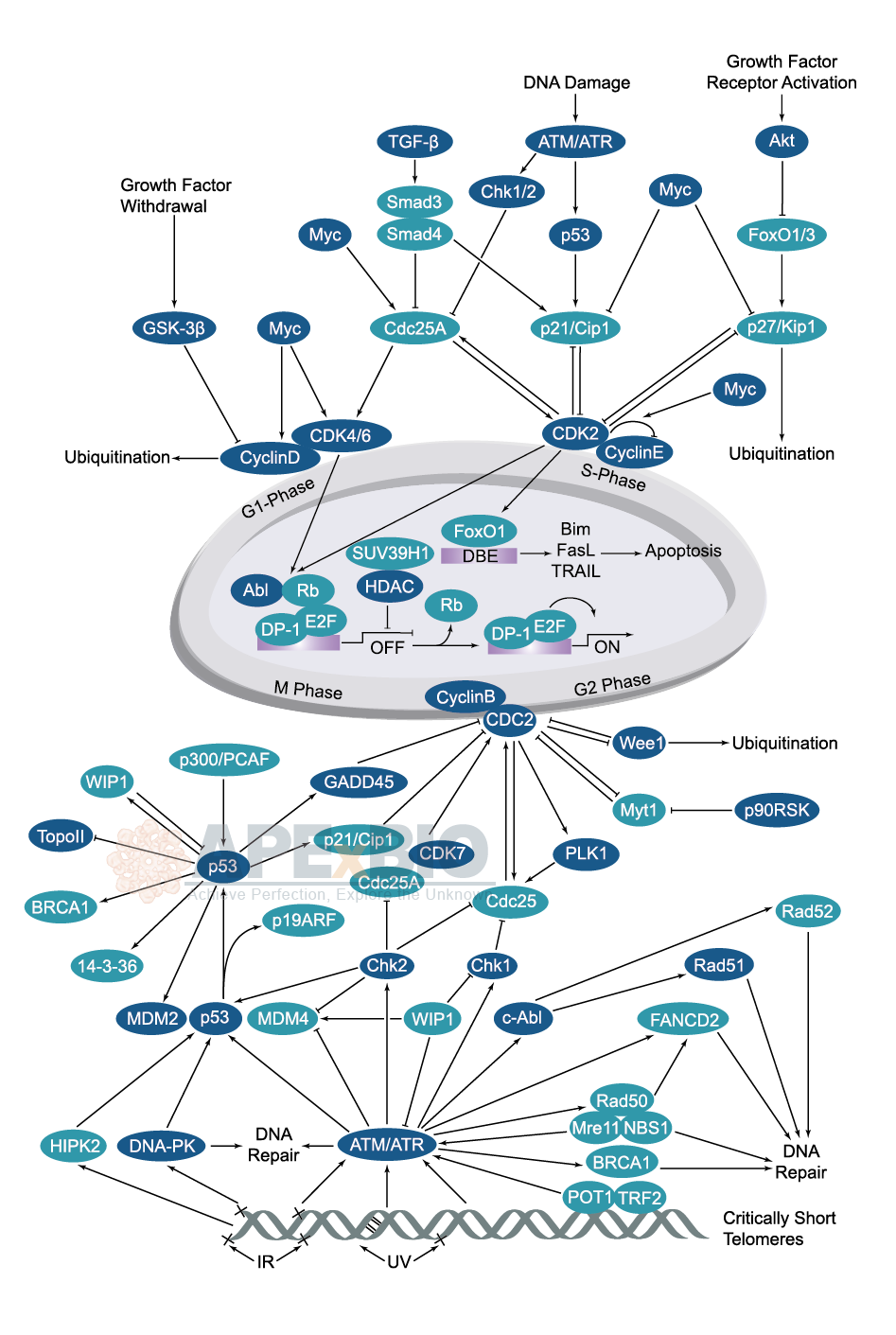
The cell cycle is consisted of 4 main phases: Gap 1 (G1), DNA replication (S), Gap 2 (G2), and mitosis (M). There are “checkpoints” mechanism regulates the transition between these phases, at the G1/S boundary, in the S-phase and during G2/M phases. Cell can only pass through these checkpoints when signaling factors are activated and free of DNA damage. Important proteins that control cell cycle events and checkpoints are cullins, cyclins, cyclin-dependent kinases (Cdks), p53 and their inhibitors etc. Cdks family (Cdk2, Cdk3, Cdk4 and Cdk6) are Ser/Thr kinases that regulate cell cycle progression in association with cyclin binding partners (cyclin D, cyclin E and cyclin A) during all four phases. p53 halts the cell cycle if the DNA is damaged and allowing time for DNA repair to progress; it can also initiate apoptosis if DNA damage is too severe to be repaired.
-
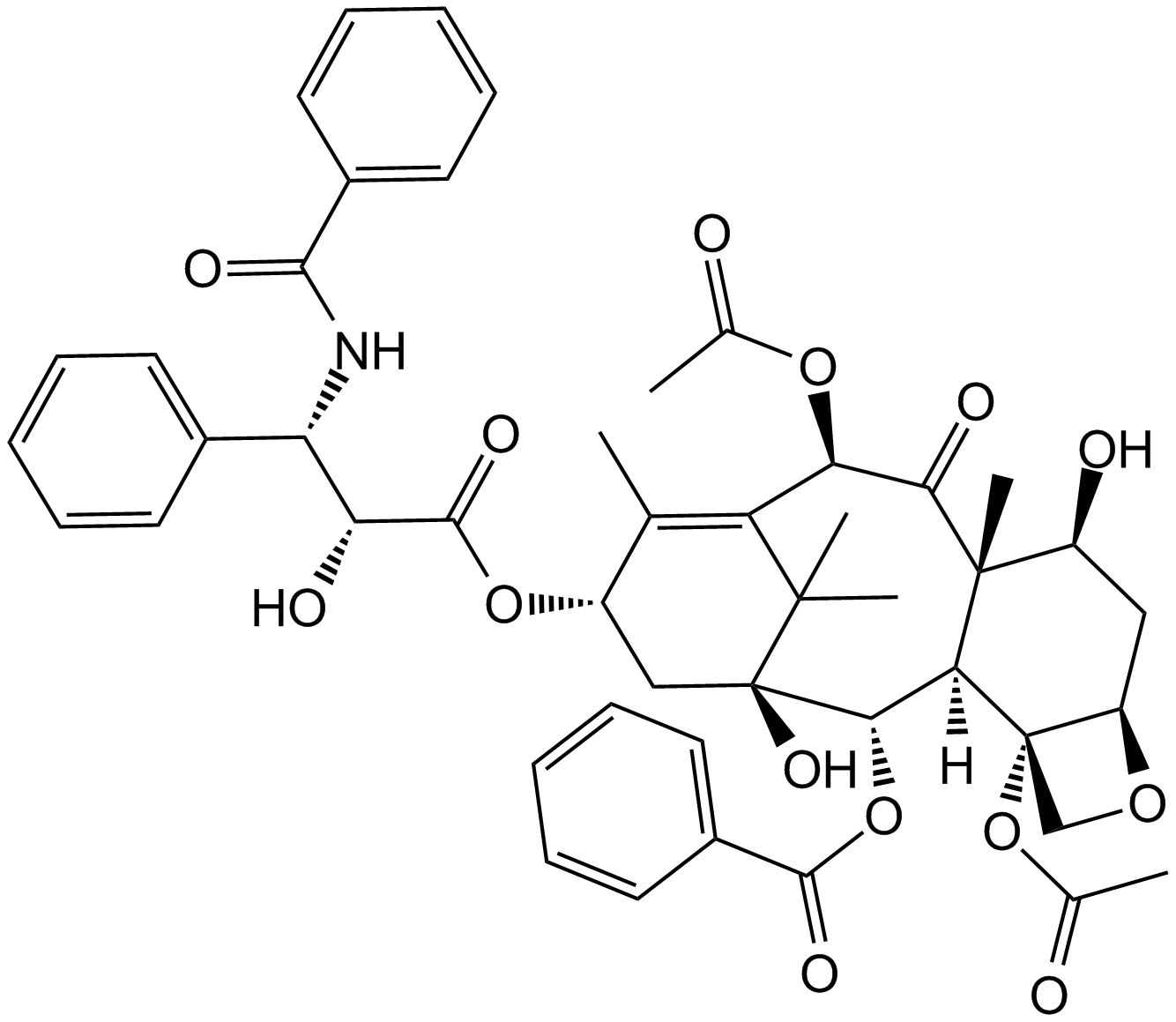 A4393 Paclitaxel (Taxol)4 CitationTarget: Microtubules/TubulinsSummary: Antineoplastic agent
A4393 Paclitaxel (Taxol)4 CitationTarget: Microtubules/TubulinsSummary: Antineoplastic agent -
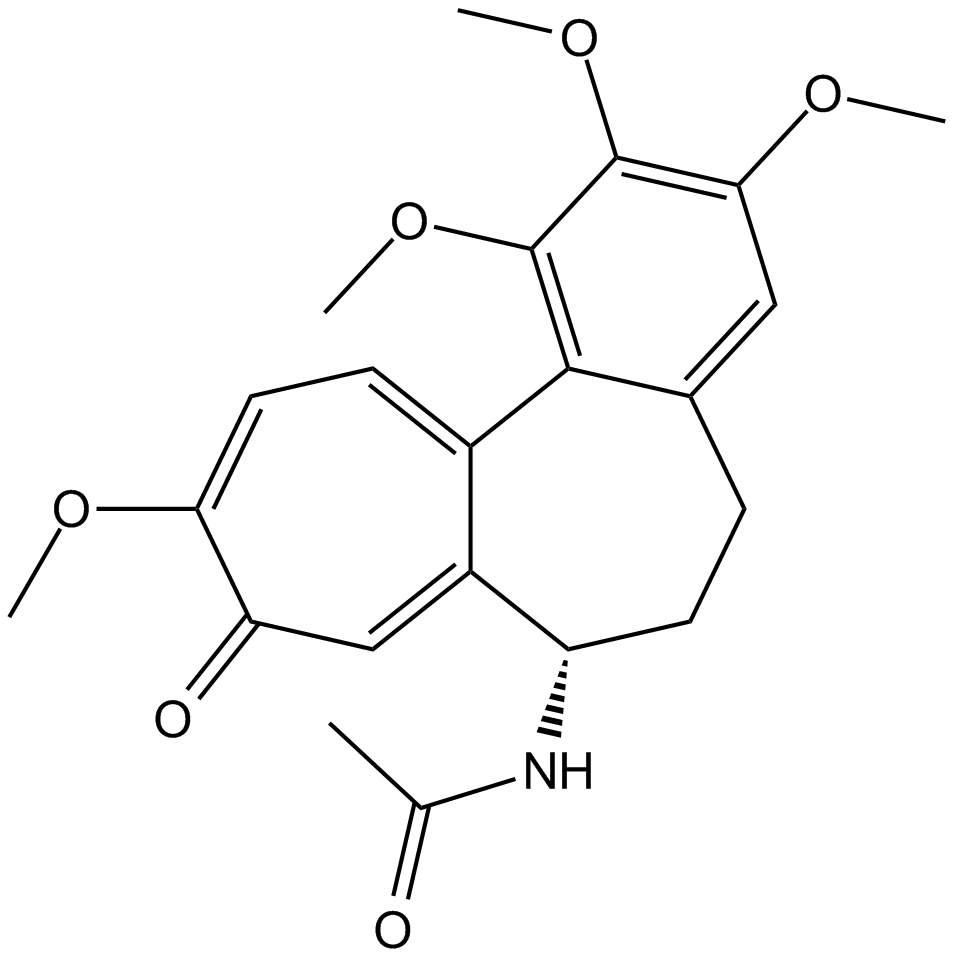 A3324 ColchicineTarget: Microtubules/TubulinsSummary: Tubulin Inhibitor
A3324 ColchicineTarget: Microtubules/TubulinsSummary: Tubulin Inhibitor -
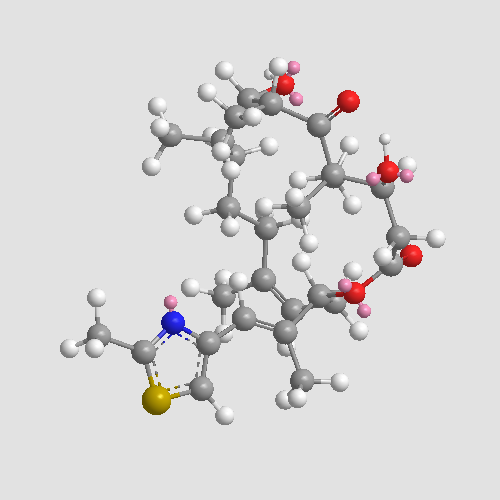 A3394 Epothilone DTarget: Microtubule/TubulinSummary: Natural polyketide compound
A3394 Epothilone DTarget: Microtubule/TubulinSummary: Natural polyketide compound -
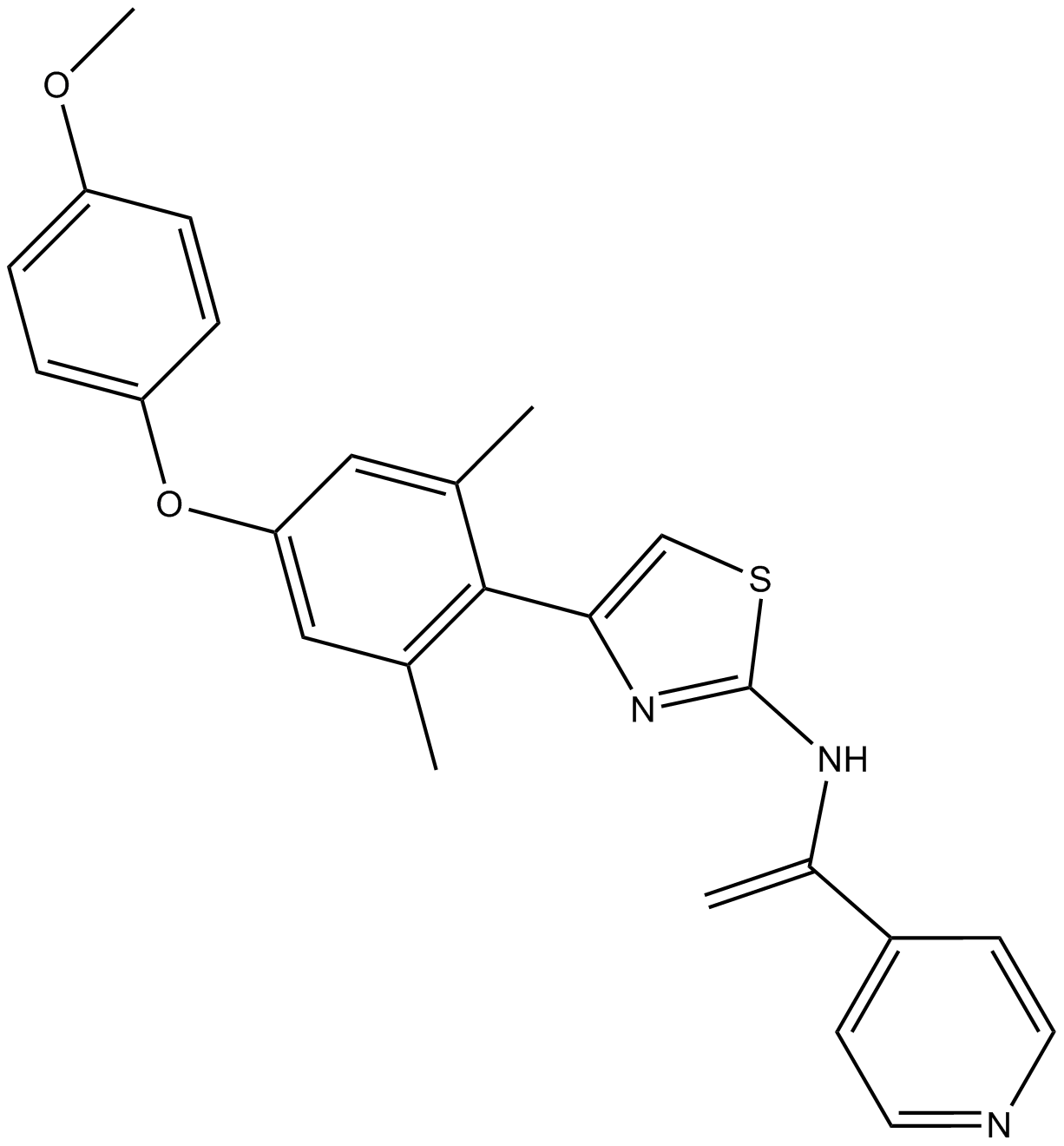 B4892 TAI-1Target: Hec1Summary: Hec1 inhibitor, potent, first-in-class
B4892 TAI-1Target: Hec1Summary: Hec1 inhibitor, potent, first-in-class -
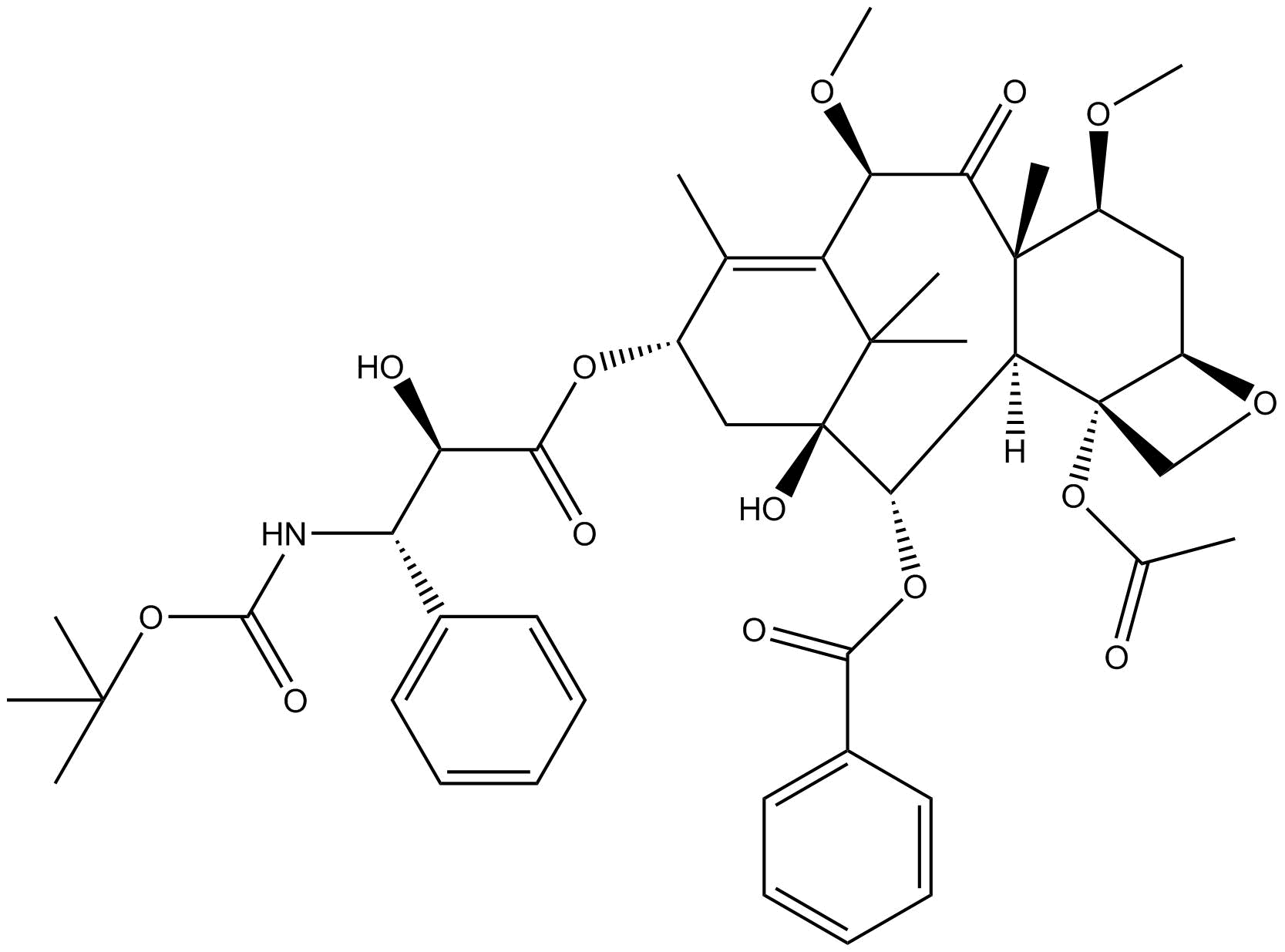 B2157 Cabazitaxel3 CitationTarget: Microtubule/TubulinSummary: Microtubule associated inhibitor
B2157 Cabazitaxel3 CitationTarget: Microtubule/TubulinSummary: Microtubule associated inhibitor -
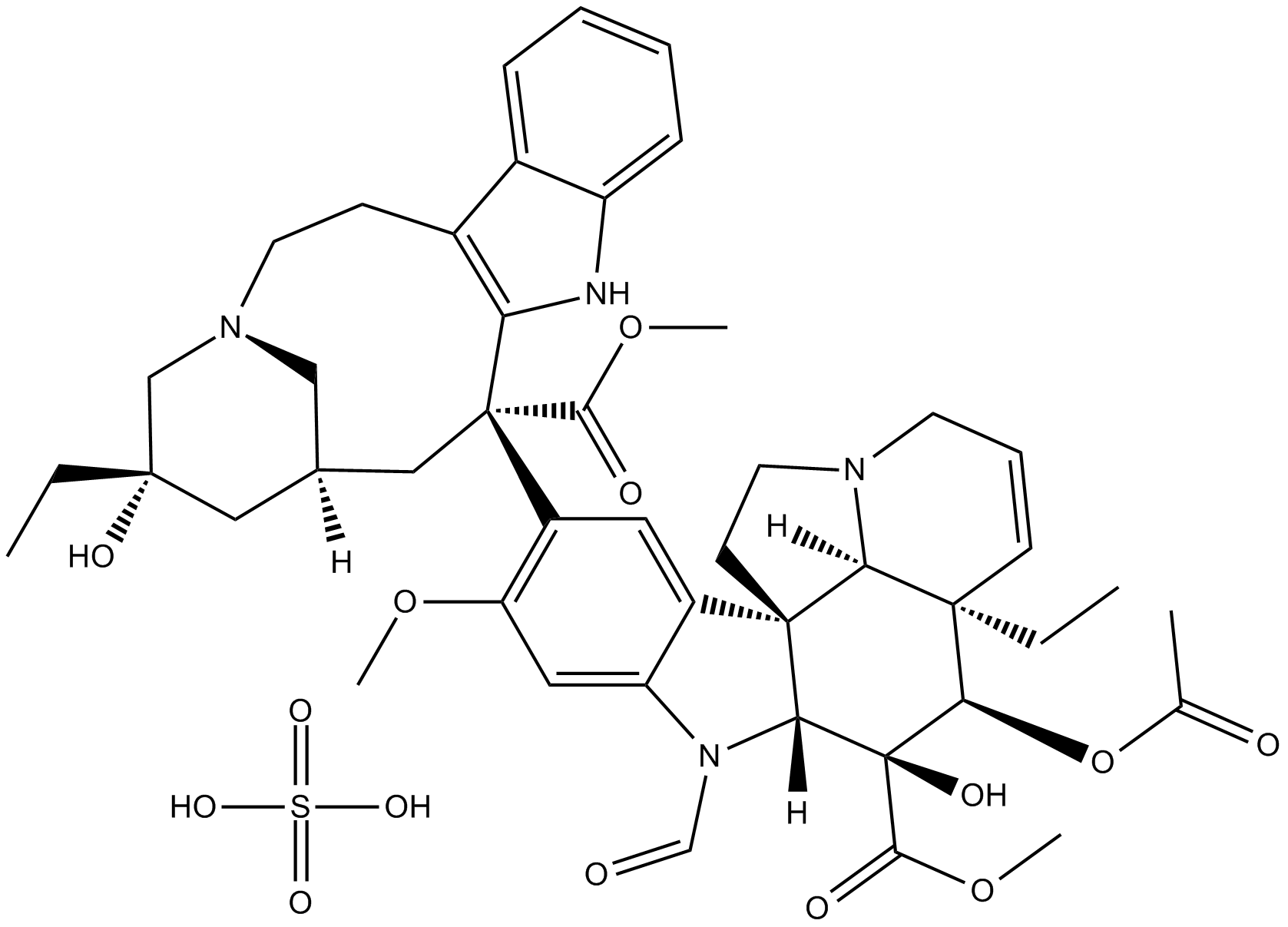 A1765 Vincristine sulfateTarget: Microtubule/TubulinSummary: Microtubule disrupter,antitumor agent
A1765 Vincristine sulfateTarget: Microtubule/TubulinSummary: Microtubule disrupter,antitumor agent -
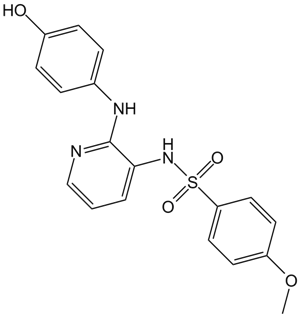 A1493 ABT-751 (E7010)1 CitationTarget: Microtubules/TubulinsSummary: Inhibitor of microtubule polymerization,antimitotic
A1493 ABT-751 (E7010)1 CitationTarget: Microtubules/TubulinsSummary: Inhibitor of microtubule polymerization,antimitotic -
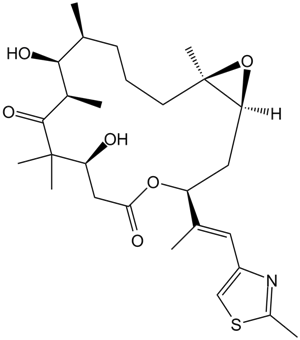 A1630 Epothilone B (EPO906, Patupilone)Target: Microtubules/TubulinsSummary: Microtubule stabilizing macrolide
A1630 Epothilone B (EPO906, Patupilone)Target: Microtubules/TubulinsSummary: Microtubule stabilizing macrolide

